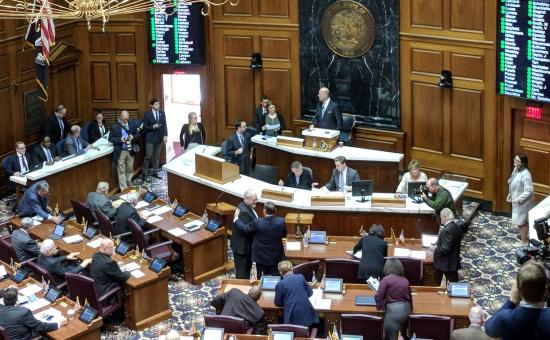Top five new education laws effective July 1
06/28/2019
While the 2019 legislative session ended in April, many laws go into effect July 1. Below are five education laws effective July 1 with the most impact on members’ work and their students.
SEA 2 – School bus safety
SEA 2 adds additional penalties, including suspension of driver’s license, for drivers who fail to heed engaged school bus stop arms. It also requires the distribution of information for how an individual or school may petition to reduce the maximum speed limit in locations to ensure safe loading and unloading of students. Upon petitioning and approval, districts could be reimbursed for the purchase of certain bus safety equipment including cameras.
SEA 390 – Civil penalties/anti-union public bargaining requirements
During formal bargaining, the act requires that an initial collective bargaining session be conducted publicly and a subsequent public hearing within 72 hours of the school employer’s ratification vote on a tentative agreement. Additionally, the act permits the state to assess fines up to $5,000 against the school administration or teachers unions for certain alleged unfair labor practices.
SEA 606 – Teacher salaries
SEA 606 raises the 33 1/3 percent provision to a 50 percent cap required when negotiating teachers’ years of experience and recognition of additional content area hours and degrees. It also allows existing teachers to receive comparable increases to what beginning teachers may receive upon entering the profession to recognize value in experience.
HEA 1002 – CTE/workforce development
This large encompassing act mostly focused on Career and Technical Education (CTE). However, changes to teacher licensing have become the major focus. Under the law, teachers in traditional public schools, using a Professional Growth Plan (PGP) for renewing their license, will be required to complete 15 of the 90 PGP points in one or more of a series of program options, including an externship, focused on career navigation or economic development.
HEA 1397 – Teacher evaluation and contracts
The act allows one-year-at-a-time transfers of monies from operations to education funds before Sept. 15 to bolster the amount of money available to negotiate contracts.
A full review of education laws from the 2019 legislative session can be found on our website.
